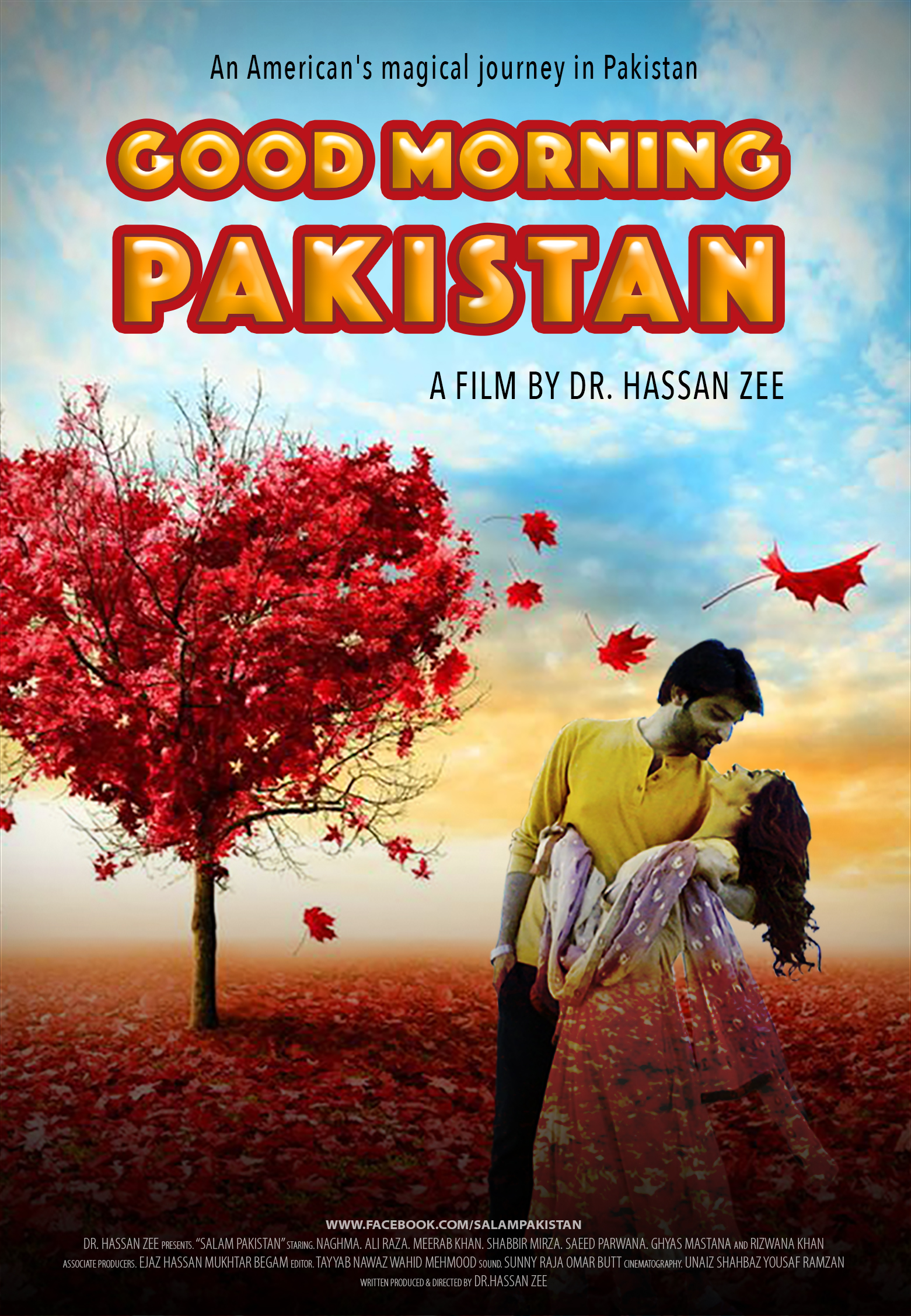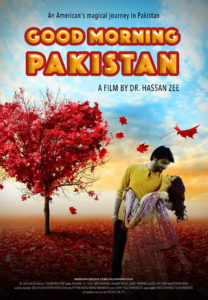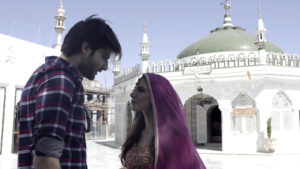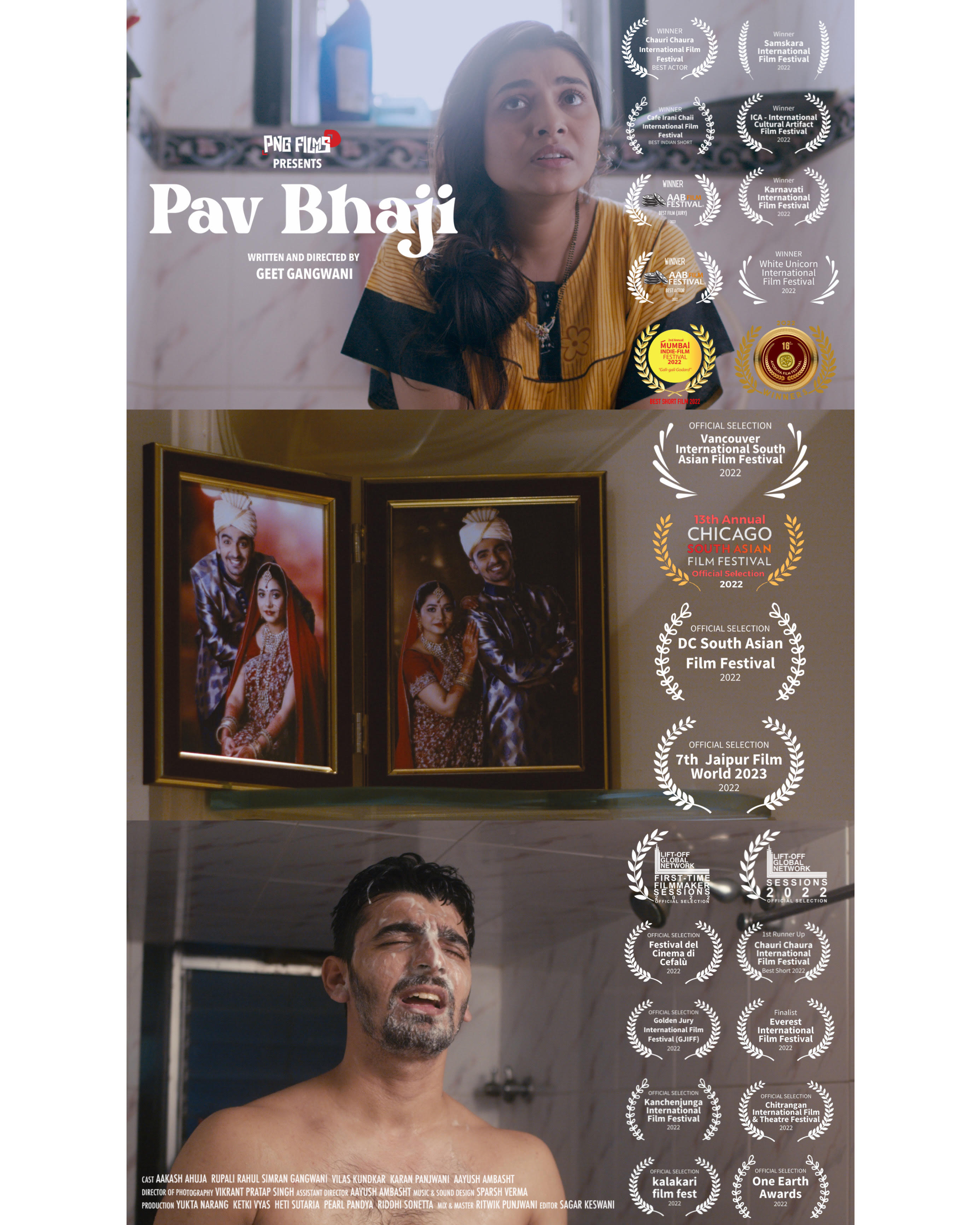
South Asian Indie Film Review “Good Morning, Pakistan”
WATCH THE TRAILER HERE
WATCH THE FILM ON AMAZON HERE
First, the Recap:
Can it be reasoned that to find oneself is to find true peace and happiness? When we feel adrift in the vast ocean known as life, it would be far less tedious to simply let the tides take us where they wish, hoping to land in that place of solace and fulfilment we desire, rather than to do what so often needs to happen–row against its pull and strive to achieve a better purpose that will aid others along with ourselves. For a young Pakistani-American man named Omar (Ali Raza), the passing of his father has left a void within, which haunts him every time he closes his eyes. Despite the resistance he receives from his beloved mother (Nargis Mansoor), Omar makes a choice to return to the family’s ancestral village in Pakistan to sort himself, and his life, out.
Upon arrival in Chakwal, met by a warm greeting from his grandparents (Shabbir Mirza & Naghma) and their household servant, a hijra named Happy Heart (Saeed Anwar Parwana), Omar begins his journey to what he hopes is newfound initiative. One day, his wanderings bring him into initial contact with an enigmatic and beautiful gypsy woman named Diya (Meerab Awan) whom he is enchanted by and soon falling for. Yet, even as the two begin to form a deeper bond, it becomes apparent that Diya’s notions towards Omar may not be what thinks, as there are bigger stakes at hand than he knows. However, will Omar’s smitten heart be able to stand firm and resolute when a shocking truth is revealed not only about Diya, but about finding resolution for greater issues that taint his positive impressions about contemporary Pakistan and the roots he holds dear?
Next, my Mind:
It is with deliberate, gradually building intent to bring forth the highly relevant and necessary social messages encompassing domestic abuse, gender inequality, subjugation of women, and related occurrences that can be found in the underlying core of this indie feature film effort from writer/director/producer Dr. Hassan Zee. As is the effective pattern with so much of South Asian cinema, in this critic’s ongoing experiences with it to date, the intermixing of drama, humor, romance, and societal statements carries with it that innate ability to engage and entertain the audience with affecting impact while likewise making us think and be made more aware of specific elements in real life that we not only need to be reminded of, but also be prompted to strive for taking associated action, ideally witnessing collaborative change because of it. It’s the means by which these ideas are presented in this powerful, albeit slow-burn, character-driven narrative that make one man’s journey to discover his heritage so overtly eye-opening and meaningful, while likewise creating a rallying cry within him thanks to an unexpected relationship manifesting that not only captures his heart, but becomes the motivation to realize the power of mutual action and heartfelt compassion. Based on the existing and heartbreaking actualities involved with those subjects above, this realization is in desperate need of being explored.
This willingness to stand up for what’s right can ultimately bring about the complete, content existence being sought while also acknowledging it cannot all be just about ourselves, but for the benefits of others as well. While the path to actually attain it can be painful and challenging, also illustrated in this film, the final results are what speak volumes to the potency of the human spirit and the needed migration from malice and anger to love and empathy, especially in today’s world, and films such as this bring out these themes without being preachy or having lack of substance while drawing in the viewer via the facets of storytelling we wish to see, hence the overall dramatic, comedic, and romantic angles here, accessible and relatable throughout. The film’s final act is quite emotionally-charged, hitting us with realities of the story’s thematic bends that will leave a lasting, evocative impression with soul-stirring urgency and visceral delivery meant to jar you. Visually, the film is well-done despite there being several scene-to-scene transitions that felt just a little abrupt or somewhat “broken”, which also showed through in several instances involving the music editing as the songs shifted sequence to sequence. But, it’s nothing that was distracting enough to take anything away from the film’s pacing or level of engagement, at least not for this critic. The quaint beauty found in rural Pakistan is showcased here wonderfully, and the fact this simple splendor hides within it the ugliness of abuse towards women, it makes the effect of it being exposed in the way the film chooses to even more impactful, which is should be.
From the acting standpoint, we begin with Ali Raza, who exudes a naturally believable and affable demeanor in his role as Omar, a young man searching for a worthwhile future in the wake of loss and a desire to build his own foundations rather than just step into the business left by his father, which is the expectation of his loving but perhaps mildly overbearing mother. Upon maintaining his choice to travel to the family’s ancestral home town of Chakwal, Omar’s adventures to find himself are started with only mild success until he meets Diya, a mysterious gypsy woman with whom Omar almost immediately feels drawn to, falling completely for her along the way. Yet, with other circumstances being revealed that make an impact upon his manner, born through witnessing both his stalwart, respected, and uncompromising grandfather’s and Diya’s deeply adamant convictions about addressing the village’s issues involving domestic abuse and a marred past, Omar realizes there’s more happening around him than he ever noticed. Soon, still thinking he’s found the love of his life, new revelations about Diya and other past events threaten to undermine everything Omar initially came to believe, shaking him to his very being, yet awakening him to discover what his purposes in life can and will be. Throughout the film, Ali Raza performs these nuances with an understated, realistic energy that befits the “everyman” character he’s playing.
Meerab Awan offers the consistent and always welcome combination found in South Asian cinema via possessing an ethereal beauty that’s then paired with endearing vulnerability yet strongly passionate, intelligent, resolute, and intensely affecting presence, all very much brought to the forefront in the actress’ portrayal of Diya, a mystifying young woman, part of a gypsy tribe, who mesmerizes Omar from the first time she appears to him to the moments they first meet face to face, projecting a loving yet strangely distant air that makes Omar desire to know more about her, even as she remains somewhat detached. As the days wane on, however, her attraction to Omar’s fancy of her grows, learning more and more about him and finding themselves swept up in the romantic atmosphere that’s created. Yet, Diya has another agenda which keeps their relationship at just enough distance so as to show Omar there’s a more important cause she’s a part of and desires to have him experience on her behalf and for his own enlightenment, which she does so emphatically and at the risk of the love Omar feels towards her. When she makes a choice that ends up turning Omar’s world and sense of reality upside down, it is a moment of admission and disclosure that brings out a long-hidden truth Diya has been keeping from Omar, a necessary step to finally bring his inquisitive mind and desperate love for her into focus and guide the next phase of both of their journeys. Meerab Awan’s performance is both heartwarming and heartbreaking, taken to poignant depths that keep with the nature of her character and the themes the film sustains at its heart.
Primary supporting roles come through Nargis Mansoor as Omar’s mother, who seeks to have her son take over the family business rather than jaunt off to Pakistan, but supports him fully nonetheless as a parent should, Shabbir Mirza as Omar’s grandfather whose influence and authority in Chakwal plays a pivotal part in Omar’s path to helping others while being an overall father figure his grandson has been longing for, veteran actress Naghma as Omar’s grandmother, whose very presence commands obedience but carries a heart of gold and concern for Omar’s well-being, Saeed Anwar Parwana as a local hijra, very appropriately named Happy Heart, the film’s comedy relief, who strives to be just that in any and all proceedings he’s a part of while exhibiting a highly devoted, stronger, and unapologetically confrontational personality when needed as well, willing to stand up to any criticism that is leveled against him, plus Shujaat Humayun and Sumera Khan as Hippy and Sehrish, “relatives” of Omar’s who are under false assumptions about his monetary status and desire to take full advantage of it. Additional turns arrive via key appearances by Mehreen Salma as Diya’s best friend and local social worker Mehroo, Rizwana Khan and Fariha Ejaz as local wives facing abuse at the hands of their husbands, played by Ejaz Hassan and Shauqat Ali, the latter of whom causes trouble initially for Omar, along with Fakhran Rabbani as another of Chakwal’s social workers, Ghias Mastana, playing the tribal hut people’s leader, along with Farrukh Turk.
In total, “Good Morning, Pakistan” stands as more than just another well-executed South Asian film that provides us the basic tone and facets listed above, but rather a passion play and statement of devotion to communicate the ongoing fight for women’s rights and the myriad of cultural rifts and injustices, from acid attacks to sexism, that we as the human race need to recognize, stand up against, and strive to see brought to an end so that we can then progress as a world that provides love, selflessness, kindness, et al, therefore putting down hatred and prejudice that they may no longer dictate any culture’s identity or legacy.
As always, this is all for your consideration and comment. Until next time, thank you for reading!





What an excellent conscious description of a movie that has real emotional depth. Great review for what sounds like a movie to see.